Business community
For years, Jess and Scott Hogan have seen the old Gig Harbor Grange building deteriorate. They had a front row view from the adjacent property that runs the Artondale Farm.
Local Grange went dormant in 2011 and ownership of the building returned to Washington’s Grange organization. Hogans, whose farm forms an L-shape around the grunge property, contacted a group of states about purchasing the building and adding it to the farm.
“It was heartbreaking to see such a historic building devastated,” said Jess Hogan.
After years of polite solicitation, Grange agreed to sell the building to Artondale Farm in 2016.
That was when Hogans’ work really started.
History of old grunge buildings
The building was born in 1912 as a Methodist Episcopal Church, and its layout has the atmosphere of a small community church.Ownership transferred to Artondale Gospel Lighthouse-Pentecostalism in the late 1930s, according to a 2014 blog post by the Harbor History Museum.
It didn’t become a grunge hall until Gig Harbor Grange No.445 bought the building and moved in in 1956.
Grange is less well known than it was then. Founded in 1867 as a fraternity and advocacy group for farmers, Grange has grown into a force in the Midwest and West of the United States.
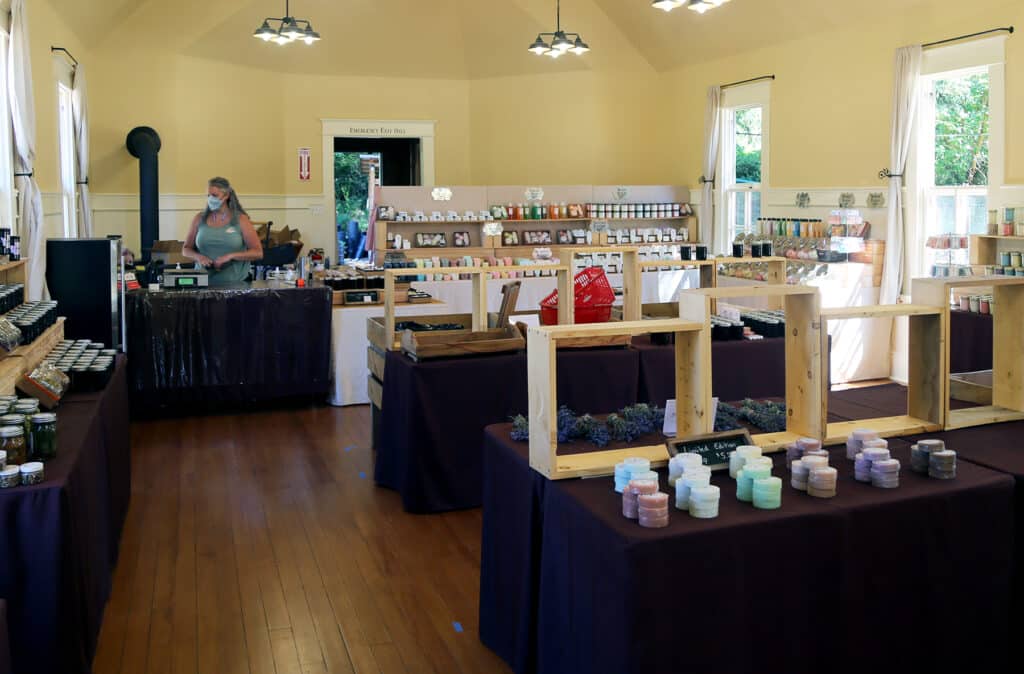
Jess Hogan works in the Artondale Farm Store, the building that previously housed Gig Harbor Grange, and the Methodist Episcopal Church. Vince dice
Washington’s grunge dates back to before it became a state. Gig Harbor’s Grange No. 445 was founded in 1910, but there was no permanent home until 1956 when he bought the Old Church on the corner of Wollochet Drive and Artondale Drive.
However, membership declined in the early 2000s as the group struggled to attract younger members and the character of the surrounding community changed. The building remained largely vacant for five years after Grange No. 445 was closed in 2011 until Hogans finally began restoration.
Artondale Farm buys building
Given its agricultural roots, it is appropriate that the building has become part of the farm.
However, it took some time to build the building to the point where it would be useful for Hogans. The old grunge acts as a farm retailer and is packed with items grown or manufactured on nearby land.
But when Hogans bought it, doing it was intangible.
A family of squirrels-perhaps some families-lived inside. Bats lived in the bell tower. The basement was severely flooded. The paint had peeled off and the beautiful old wooden floor had to be surfaced.
“It was a shambles,” recalled Jess Hogan. “It took a lot of work.”
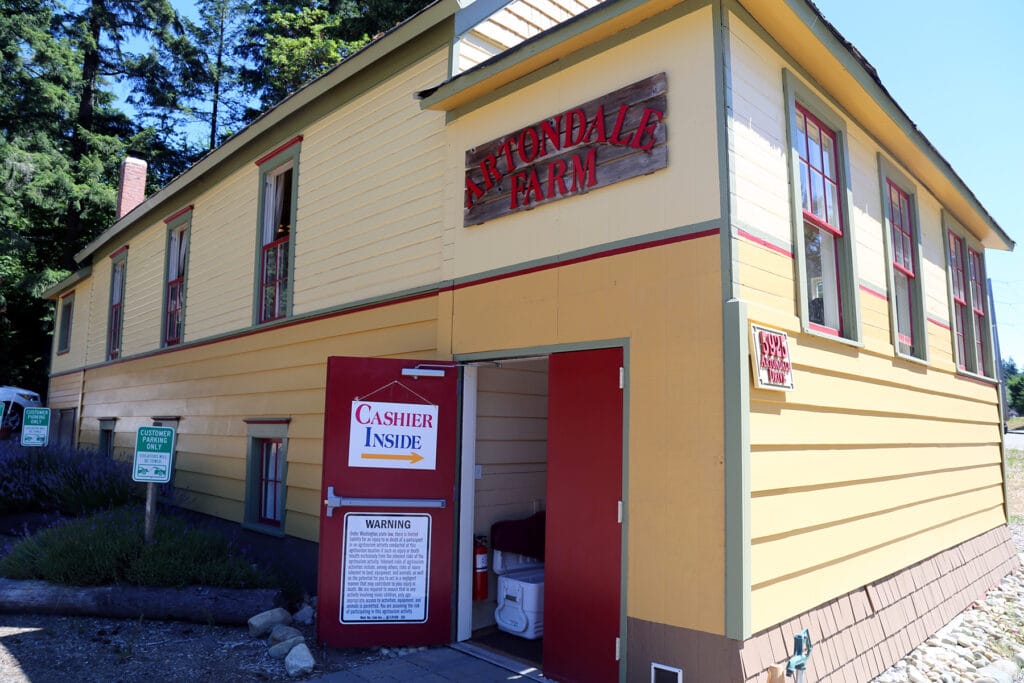
The entrance to the Artondale Farm Store in the former Gig Harbor Grange Hall. The Hogans, who own an adjacent farm, have been renovating the building since 2016. Vince dice
Hogan spends spring and summer running his farm, so most of the old grunge work is done in autumn and winter.
They did a lot in the meantime. The walls were repaved, the floor was polished and refinished, and the floods were repaired. A new trim has been installed around the window. The cat on the family farm did a quick job for the squirrel.
After being delayed by the Covid-19 pandemic, the building began service as a farm store in 2021 and reopened this summer.
repair
Hogans is very well suited to undertake this project.
Scott Hogan holds a college degree in architecture and is a skilled carpenter.
Together, Scott and Jess restored their 1923 home in Southeast Portland before returning to Gig Harbor, where both were raised.
Both their Portland homes and current projects require a lot of research.
Hogan examined old photographs, found examples of trim pieces suitable for the times, and imitated them during reconstruction.
They also investigated what interior and exterior wall colors were suitable for the time. The appearance of mustard yellow is not original — it was white as expected because the building was born as a church — but Hogans found a picture of a house of that era in similar shades.
The interior color matches the original. They found a piece of paint on the back of the building and took it to a paint shop. It was able to fit in the shade.
“I want to get it back to what it was when it was built in 1912,” said Jess Hogan, but with modern conveniences such as electricity and indoor plumbing.
She looked around the interior of the building and added: I don’t think she ever looked like this. “
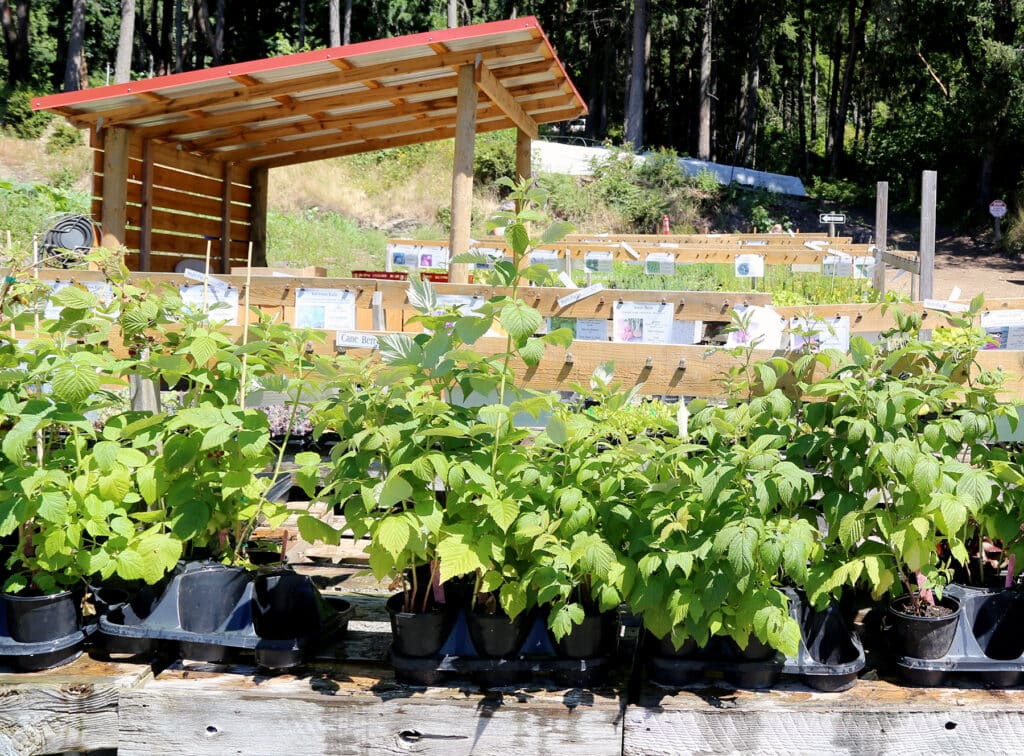
A plant for sale at Artondale Farm on July 19, 2022. Vince dice
How the building fits into the Artondale Farm
The effort has paid off as the building has brought great benefits to Artondale Farm.
Previously, farms sold produce and other commodities in parking lots and farmers’ markets. Having a real storefront was beneficial, Jess Hogan said.
Selling produce outside near a crowded intersection can be a problem. Exhaust fumes and gusts from passing cars do not make lettuce more appetizing. The pair also sells non-agricultural products such as bath and body products. If left in the heat for long periods of time, they can be ruined.
Also last week, jams, lavender twigs, vegetable beginnings, and culinary herbs were sold in the former Grange Hall. The raspberries were almost ripe and ready for sale. Jess Hogan said all types of produce, including tomatoes, peppers, beans and beans, will be available “as soon as Mother Nature joins the program.”
“It was great for the business,” she said. “I was able to exhibit much more than when I was selling it outside.”
Hogans wants to see pictures of the building when it was a grunge hall or when it was a church. This helps with the restoration work, and Hogans wants to turn the entrance area into a kind of mini-museum.
Anyone who has such a photo can contact Artondale Farm [email protected], In text (253) 313-3945 or Store, 5925 Artondale Dr. Store is open from 11am to 5pm on growing Fridays, Saturdays and Sundays.
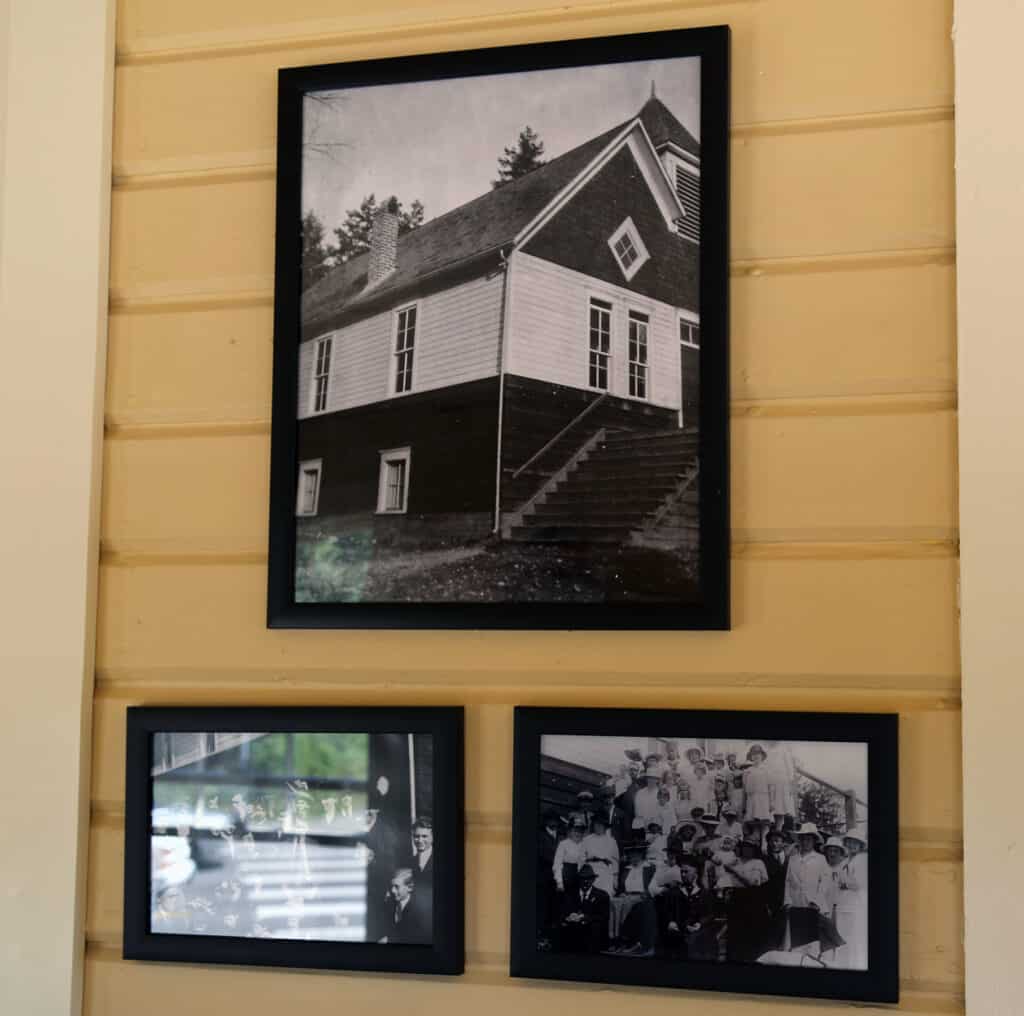
An old photo of the former Gig Harbor Grange building adorns the entrance to the current Artondale Farm Store. Vince dice

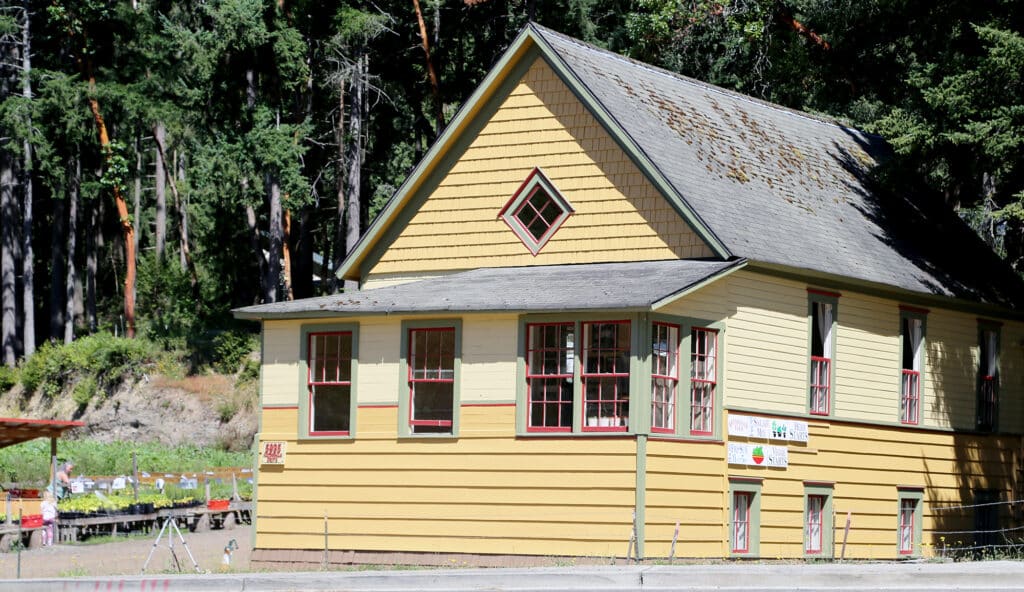
Commentaires
Enregistrer un commentaire